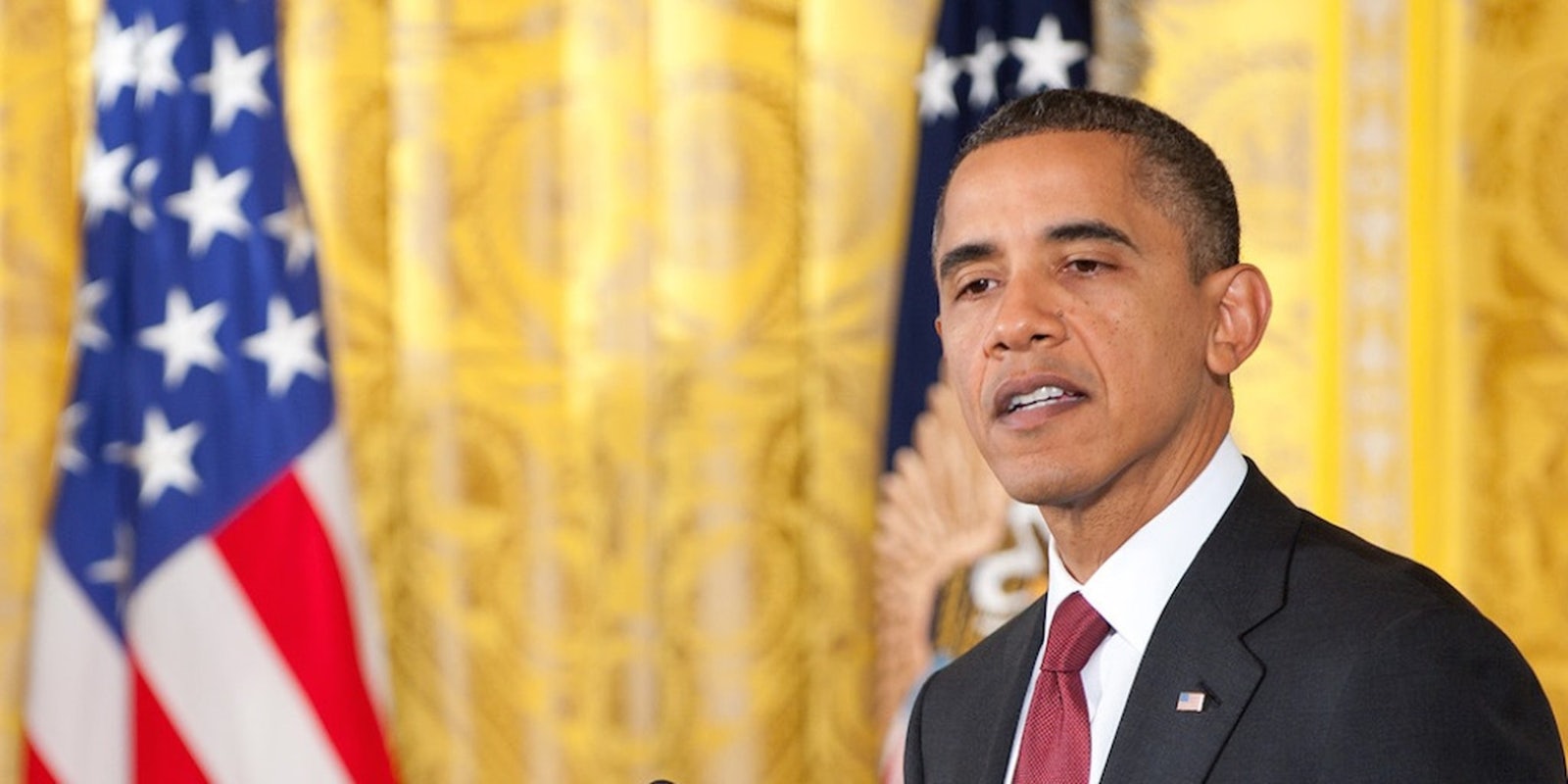It’s easy to dismiss President Barack Obama’s pledge not to support any Democratic candidate who opposes what the president calls common sense gun reform.
After all, Obama’s stance won’t make much difference in the 2016 campaign. No pro-gun Democrat is likely to seek Obama’s support this year, given his unpopularity in the states and districts such candidates come from.
But even if it doesn’t matter to Democratic candidates, the president’s position is important. It highlights a dramatic shift in the party during his presidency.
For most of Obama’s presidency, Democrats who opposed gun control were protected by party leaders, including Obama himself. No more. The party’s big tent has shrunk. It’s becoming too small for lawmakers out of step on guns.
“I will not campaign for, vote for or support any candidate, even in my own party, who does not support common-sense gun reform,” Obama said in an op-ed posted on Thursday in the New York Times.
In a Times Op-Ed, @POTUS writes that he will not back any candidate who does not support common-sense gun reform https://t.co/oDLQPJczor
— The New York Times (@nytimes) January 8, 2016
“All of us need to demand leaders brave enough to stand up to the gun lobby’s lies,” Obama wrote. “All of us need to demand that governors, mayors and our representatives in Congress do their part.”
The op-ed was posted just in time to compliment Obama’s message at a Thursday night town-hall event hosted by CNN. There, he touted his recent executive actions on guns in the face of questions from a colorful cast including CNN’s Anderson Cooper, Taya Kyle, the widow of “American Sniper” Chris Kyle, former Rep. Gabby Giffords’ husband, an aggressively pro-gun Arizona sheriff unbowed by a sex scandal that outed him as gay, and family members of gun violence victims.
The op-ed was clearly timed to bolster Obama’s message at the town hall meeting—but it also broke new ground.
Democrats blamed defeats in the 1994 midterm and 2000 presidential election in part on gun control legislation passed in the 1990s. They spent the next 13 years trying to avoid the issue.
Obama’s decisive 2008 election ushered into Congress scores of Democrats from rural states and districts who scrupulously maintained “A” ratings from the National Rifle Association. Rahm Emanuel, Obama’s first chief of staff, while he served in House leadership, was a close ally of such members, working to keep any whiff of gun control off the party’s agenda.
For most of Obama’s presidency, Democrats who opposed gun control were protected by party leaders, including Obama himself. No more.
Emanuel played a similar role in the White House prior to his departure in late 2010. He kept pro-gun Democrats close and gun control advocates at arms length. In 2008 and into the 2010 congressional midterm election, Obama, needing their votes on other issues like healthcare, campaigned for Democrats who broke with him on guns.
Red-state candidates who wouldn’t benefit from the president appearing with them, such as then-Sen. Blanche Lincoln, D-Ark., received other help, like targeted radio spots.
After 2010, Obama stumped for fewer rural state Democrats who differed with him on guns. But he still helped them raise cash by lending his name and fundraising network.
Political reporters were quick to note that Obama’s op-ed pledge amounts to refusing help to Democrats who don’t want it. Those who do, Democrats representing urban areas, agree with him on guns.
Yet, as with other former presidents, Obama’s popularity is likely to improve once he leaves office. He may be back in demand by 2020.
More importantly, Obama’s position highlights where his party is now. The 2010 and 2014 midterm elections cost scores of pro-gun Democrats their seats. The resulting, smaller Democratic Party in Washington is less southern and western and overwhelmingly comprised of lawmakers from cities and suburbs. Minorities make up more of the party. Anti-gun voices are louder.
Those members mirror a change in a Democratic electorate that has evolved into a more geographically and ideologically homogenous group. A coalition that puts Hillary Clinton in the White House will look far different from those her husband assembled in the 1990s. The white, male, rural gun owners the party spent 20 years courting by avoiding gun control have largely left the party anyway.
Add to that anger among Democratic voters at Congress’ failure to respond to the Sandy Hook massacre and other mass shootings. The result is a newly unified party that sees gun regulation as morally necessary and politically expedient. Patience for internal dissent is low.
Obama’s pledge is less a change than a symptom of where he and his party have gone on guns. His exit next year won’t usher in a repeat of the years Democrats spent ducking gun law reform. It will mark the start of a more pitched partisan fight on guns.
Dan Friedman has worked as senior Washington correspondent for the New York Daily News and reported on the Senate and congressional oversight for National Journal. He started his reporting career in Boston. He is a graduate of the University of Pennsylvania and holds a Masters in International Relations from the London School of Economics.
Photo via U.S. Army Europe/Flickr (CC BY 2.0)


